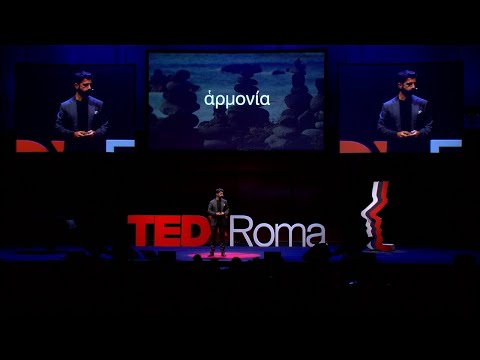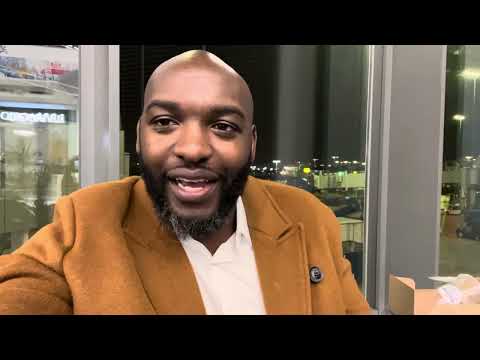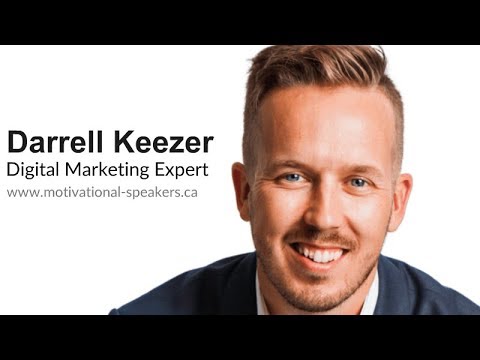In today’s digital era, mastering digital marketing for speakers is essential for elevating a speaker’s career. With so much digital noise, crafting and sharing content that resonates is key. This guide dives deep into strategies that help speakers shine in a saturated market, emphasizing the creation of standout content that effectively captivates audiences.

The Role of Content in Digital Marketing for Speakers
Whether you’re an aspiring or seasoned speaker, content is your trusty sword and shield. It’s how you engage, communicate, and build your brand. Icons like Brene Brown and Tony Robbins harness content to not just spread their message but to forge profound connections with their audiences. Let’s explore some effective content types.
Video Marketing and Storytelling
Videos pull viewers in by engaging both the eyes and emotions. Speaker Simon Sinek, for instance, excels in using storytelling through videos to cement a strong rapport with his audience. His TED Talks and YouTube posts demonstrate how stories can vividly translate concepts, creating content that sticks.
Key Tip: Develop concise, impactful stories that align seamlessly with your speaking topics. Make them visually appealing and stir the heartstrings. This way, your content isn’t just seen—it’s felt.
Explore how the personas of public figures like Nathaniel Mendez laing can inspire captivating storytelling.
Blogging and Thought Leadership
Blogging is your golden ticket to thought leadership. Gary Vaynerchuk, a maestro in marketing and social media, strategically uses blogs not just to share insights but to cement his authority in the digital domain.
Key Tip: Regular posts about industry trends paired with actionable insights can set you apart. Share your unique viewpoint to cultivate authority. For more entrepreneurship insights, visit Entrepreneurship advice.

Social Media Strategies for Speakers
Social networks are challenge and opportunity, rolled into one. They’re indispensable in expanding your reach and enhancing your brand’s digital footprint.
Leveraging LinkedIn for Professional Growth
LinkedIn stands out as a pivotal platform for speakers seeking connections with event organizers and corporate clientele. Mel Robbins effectively uses LinkedIn not just to share motivational nuggets but to boost her network and broadcast speaking gigs.
Key Tip: Engage in discussions, share content consistently, and use LinkedIn articles to dive deep into your topics. Discover strategies at How To grow Your business.
Instagram for Personal Branding
Instagram is where visuals meet personal branding. Rachel Hollis offers a stunning example of using Instagram not just to showcase her professional side, but also to connect on a personal level with her followers.
Key Tip: Craft engaging content that echoes your speaking persona, using stories for real-time engagement. Discover who inspired icons like Sharon Costner with visuals and stories.

| Category | Description |
| 5Ps of Digital Marketing | |
| People | Identify and understand your target audience to tailor content that resonates with them. Utilize demographics and psychographics to reach the right people. |
| Product | Your speaking topics and expertise. Highlight unique perspectives and value you bring. Develop a strong personal brand around your speaking engagements. |
| Price | Pricing needs to reflect value while being competitive. Consider offering tiered pricing including free content (like webinars or e-books) to draw interest. |
| Place | Utilize platforms where your audience is most active. This can include social media, speaking platforms (like TED or webinar platforms), and professional networks like LinkedIn. |
| Promotion | Leverage various channels to promote your speaking services, such as email marketing, social media advertising, partnerships with industry influencers, and content marketing. Use testimonials and speaker reels as promotional tools. |
| Content Strategy | |
| Blog Posts | Write articles that showcase your expertise and solve problems your audience faces. Optimize for SEO to increase visibility. |
| Videos | Create high-quality videos to demonstrate your speaking ability and share insights. Consider platforms like YouTube or Instagram Live. |
| Podcasts | Develop a podcast to share in-depth knowledge and engage with a broader audience. Invite other experts for discussions to increase reach. |
| Social Media Posts | Regularly post valuable and engaging content to maintain visibility and connection with your audience. Use storytelling techniques to connect emotionally. |
| Free Resources | Offer free resources like e-books or webinars to capture leads and provide value. Use these as lead magnets to grow your email list. |
| Benefits of Digital Marketing for Speakers | |
| Increased Visibility | Digital presence helps you reach a wider audience globally. |
| Branding Opportunities | Establishes your personal brand and authority in the field. |
| Engagement | Allows direct communication and engagement with your audience. |
| Cost-Effective | Digital tools enable reaching your audience without prohibitive costs. |
| Measurable Results | Analytics help you track success and optimize strategies. |
SEO Optimization for Speaker Websites
A well-optimized website is non-negotiable. It’s all about visibility and snagging those coveted speaking opportunities.
Keyword Strategy and Content Creation
Dive into keyword research to grasp what your audience truly seeks. Jay Shetty masterfully uses SEO-enriched content to draw visitors to his platform, offering insights on speaking and coaching.
Key Tip: Seamlessly weave relevant keywords into your content. Create in-depth material that addresses audience questions. Delve into What Is title insurance for SEO nuances.

Email Marketing: Building a Loyal Audience Base
Email marketing can be your secret weapon for staying connected. Thought leaders like Amy Porterfield capitalize on newsletters to offer sneak peeks, event updates, and personal insights.
Key Tip: Fill your emails with value—exclusive tips, gratis resources, or special invites to events. Build that loyalty and engagement. And if numbers are your game, check this Amorization calculator.

The Impact of Webinars and Online Workshops
Virtual events are now mainstream. Webinars and workshops aren’t just about sharing knowledge—they’re phenomenal marketing avenues.
Hosting Engaging Webinars
Pat Flynn’s webinars showcase his mastery over engagement—a marketing tool and a value-packed offering in one. They amplify his reach and underline his expertise in entrepreneurship.
Key Tip: Design webinars that compel participation. Use Q&As and polls to keep them interactive.
Wrapping Up: The 5Ps of Digital Marketing
In digital marketing, don’t forget the 5Ps: People, Product, Price, Place, and Promotion. High-quality, value-studded content is a cornerstone for motivational speakers. Be it blogs, videos, or workshops, let your expertise resonate. Craft content not just as a marketing tool but as a reflection of who you are. Remember: It’s all about growth and nurturing deeper connections. For more personalized speaker training, check out Keynote speaking training and Wealth-building Strategies.
By mastering these strategies, you’re not just amplifying your voice—you’re aiming for that number one spot in the digital landscape.
Digital Marketing for Speakers
Stepping into the marvelous expanse of digital marketing for speakers is like venturing into an adventurous landscape where you can transform your speaking legacies into digital triumphs. Do you know that not long ago, the leading speakers didn’t have the digital powerhouses at their disposal that they do today? These days, livestreams and podcasts make it possible to reach audiences far and wide. Speaking of live events, did you ever wonder which digital marketing tool assists speakers in sending personalized invites to their audience? Spoiler alert: It’s email marketing! Yes, the humble email marketing strategy( still reigns supreme as one of the most effective ways for speakers to connect with their audience.
Power of SEO
Not to sugarcoat it, the role of SEO in digital marketing for speakers has skyrocketed. Fun fact: effective SEO is almost like the secret ingredient in a speaker’s concoction for digital visibility. Beyond engaging content, it’s SEO that helps accomplished speakers stand out online. On an intriguing note, did you know search engine optimization plays a pivotal role in elevating your online presence when done right? It’s astounding, really. But does this mean you can rest easy once SEO is done? Hold your horses! Like any chef worth their salt, you’ll need to keep tweaking and adjusting your approach, as SEO isn’t a one-time fix but an ongoing process.
Social Media Buzz
Switching gears a bit, let’s talk about the enthralling impact of social media in digital marketing for speakers. Social spaces have become the new stages! What’s so captivating is how speakers can harness the power of platforms like Instagram and YouTube to impart knowledge and engage in dynamic discussions. Here’s a pearl of wisdom: Did you know that through social media, speakers not only promote themselves but also build a personal brand? By regularly engaging with their audience, they foster a community. With platforms playing such a strategic role, learning to navigate this scene well can lend speakers that coveted edge. As quirky as it sounds, even using the right hashtag can sometimes make all the difference in boosting content reach!

How do I advertise myself as a speaker?
Getting yourself out there as a speaker means building a strong personal brand and showcasing your expertise through various channels. Start by creating quality content like blog posts, videos, and podcasts that reflect your knowledge and engage your target audience. Use social media to connect with people, share your insights, and establish your presence by offering valuable free resources like e-books or webinars.
What are the 5 P’s of digital marketing?
The 5 P’s of digital marketing are People, Product, Price, Place, and Promotion. People involve understanding and targeting your audience. Product means offering something that meets customer needs. Price is about setting a competitive cost while making a profit. Place involves choosing the right distribution channels. Promotion covers the strategies used to communicate with and persuade customers.
What are the top 7 types of digital marketing?
The top 7 types of digital marketing include search engine optimization (SEO), content marketing, social media marketing, pay-per-click advertising (PPC), affiliate marketing, email marketing, and mobile marketing. Each type plays a unique role in promoting products or services online, and leveraging them effectively can broaden your reach and impact.
What is the marketing product for motivational speakers?
For motivational speakers, the product is essentially your content and delivery—your talks, webinars, and seminars that inspire and engage audiences. You’re essentially selling your expertise, the value of the stories you share, and the actionable insights you offer to motivate and empower others.
How do I price myself as a speaker?
Setting your speaker fee starts with researching the market rates and considering experience, niche expertise, and audience size. Don’t undervalue your worth but be sure it reflects both the quality and impact of your presentation, balancing competitiveness with fair compensation for yourself.
How do I sell myself as a motivational speaker?
Pitching yourself as a motivational speaker involves articulating your unique value proposition, sharing your story compellingly, and highlighting the benefits you bring to your audience. Tailor your approach to fit the event or organization and show genuine passion for the impact you aim to create.
What are the 7 C’s of digital marketing?
The 7 C’s of digital marketing include Customer, Content, Context, Community, Convenience, Cohesion, and Conversion. These elements focus on enhancing customer experiences, creating value-driven content, understanding the context of your audience’s needs, and ensuring cohesive strategies for seamless engagement and conversion.
What are the 4 F’s of digital marketing?
The 4 F’s of digital marketing are Function, Finances, Freedom, and Future. They emphasize the functionality of your marketing strategies, financial benefits and budgets, the freedom to innovate and adapt, and long-term future planning for sustaining marketing success.
What are the 4 A’s of digital marketing?
The 4 A’s of digital marketing are Awareness, Appeal, Ask, and Action. They revolve around creating awareness of your brand or product, making it appealing to your audience, encouraging audience interaction or inquiries, and prompting meaningful actions like a purchase or subscription.
Who is the No 1 digital marketer?
There’s no definitive “No. 1” digital marketer as the field is diverse and ever-growing. Industry leaders vary by expertise and innovation, each bringing unique strategies and insights to the table. Influential marketers often distinguish themselves through groundbreaking campaigns and thought leadership.
Which digital marketing is best for beginners?
For beginners, content marketing is often a great start. It allows you to express creativity, helps build a personal brand, and is relatively low-cost compared to other forms of digital marketing. It also lays a solid foundation for understanding customer engagement and needs.
Which type of digital marketing makes the most money?
SEO, or search engine optimization, often generates substantial income, especially when paired with e-commerce or lead generation efforts. By improving organic search traffic, businesses can significantly boost their sales and revenue, making SEO a lucrative digital marketing type.
How to market a public speaker?
Marketing a public speaker involves creating a strong, recognizable brand and leveraging digital platforms to reach potential clients. Share engaging content that showcases your skills, build a compelling personal website, engage in social media marketing, and use email campaigns to connect with industry professionals.
Is there a demand for motivational speakers?
There’s definitely demand for motivational speakers, especially those who can connect authentically with their audiences and offer relevant messages. Companies, schools, and events regularly seek speakers to inspire and motivate their teams or attendees.
How do motivational speakers get started?
Getting started as a motivational speaker often begins with identifying your unique message and audience. Practice speaking to small groups, network with industry professionals, and continually improve your storytelling and delivery skills to build credibility and experience.
How do you introduce yourself as a speaker example?
When introducing yourself as a speaker, clearly state your name and role, followed by a brief overview of what you’ll be discussing. Highlight any unique credentials or experiences that make you particularly suited to speak on the topic.
How do you pitch yourself as a speaker?
Branding yourself as a public speaker involves defining what makes you unique and crafting a consistent message across all platforms. Develop a strong online presence with a professional website and active social media profiles, and use content marketing to establish yourself as an expert in your field.
How do you brand yourself as a public speaker?
Getting your name out there means consistently sharing valuable, engaging content and building a network in your industry. Attend events, seek speaking opportunities, and use social media to connect with others. Gathering testimonials and publicizing your successes can help enhance your visibility.









